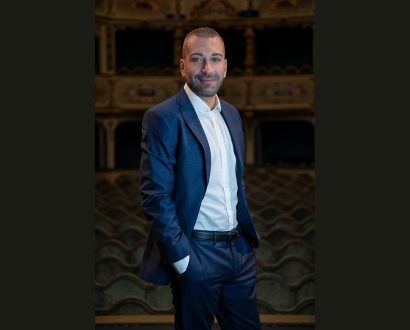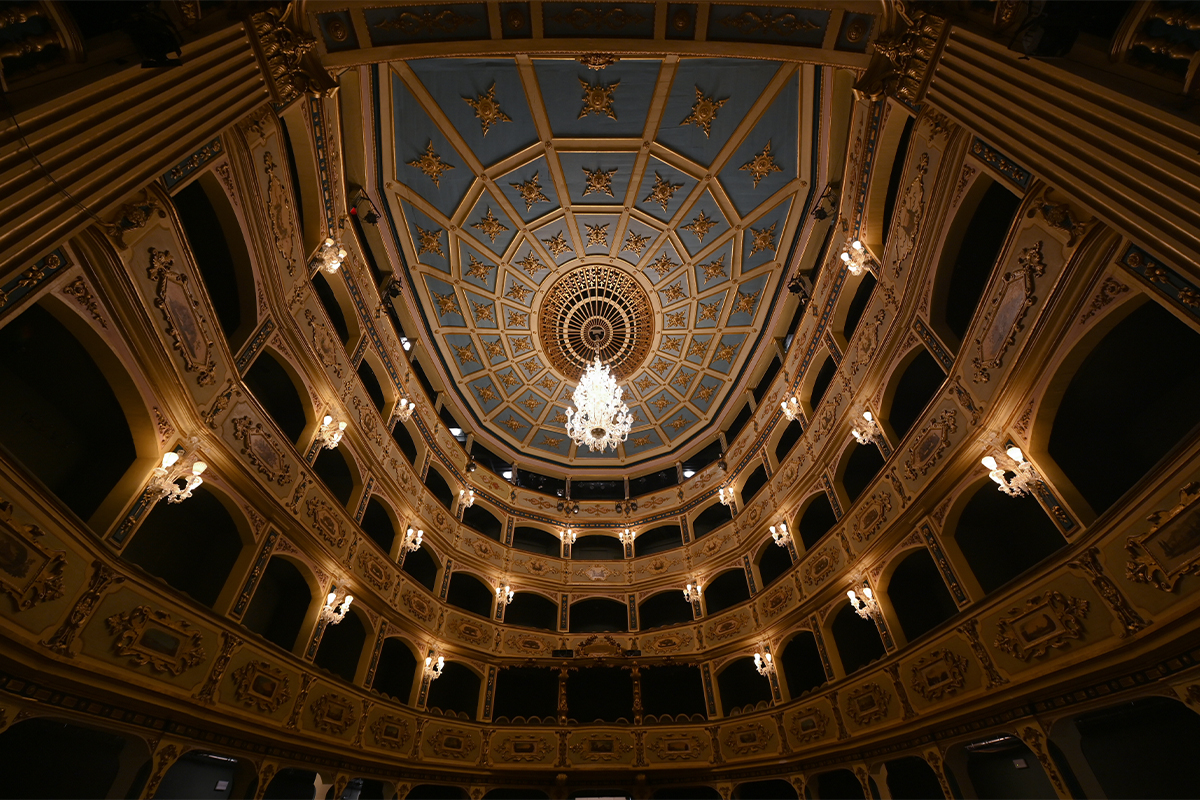Teatru Manoel’s CEO on the importance of innovation at Malta’s national theatre

For almost three centuries, a small, beautiful baroque theatre in Malta’s capital city, Valletta, has stood steadfast as the world changed around it.
Longevity has long been a hallmark of Teatru Manoel, built at a time of unprecedented stability in the country following near-endless unrest amid countless conquerors.
To celebrate this new-found peace and prosperity, António Manoel de Vilhena, Grand Master of the Order of the Knights of St John, commissioned and personally funded the theatre’s construction in 1731.
Ever since, Teatru Manoel has met the island nation’s insatiable demand for theatrical productions, operas, pageants and concerts, withstanding invasions, occupations, colonisations and now, even a global pandemic.
As the third-oldest working theatre in Europe, today it is still the lifeblood of Malta’s artistic community, as well as a much-loved figurehead of the country’s cultural heritage.
"Changing consumer preferences and behaviours during the pandemic and new economic realities may have longer-term effects on audience patterns."
Far from relegation to history books and national nostalgia, however, Teatru Manoel’s ongoing success hangs not just on its endurance, but also on its ability to stay relevant through time, evolving alongside the community it serves and the wider cultural industry it supports.
"Teatru Manoel’s continued success stems from its mission and vision statements," CEO Massimo Zammit explains. "It strives to provide directors, writers, actors and designers with a platform to unleash their creative potential and further explore their talents.
"The Manoel offers a diverse program of events and productions, which appeal to a wide audience and draw in people from different walks of life."
Preserving the cultural community

But it hasn’t all been smooth sailing. Massimo took the helm as CEO of Teatru Manoel at one of the arts sector’s toughest moments. With the arrival of the COVID-19 pandemic, theatres worldwide closed their doors as instructed to protect both artists and audiences.
Artistic opportunities vanished overnight. Yet, throughout its 300-year history, the theatre has weathered many such storms – and pioneered new eras for the industry in the aftermath.
"To survive, we got more creative about how we reached our audiences. The future of the theatre – just like the sector – depends on further innovation. Together with Malta’s artists, we learned how to work better and collaborate remotely," Massimo reveals.
"Online theatrical productions resulted in global collaborations, accessible productions and the incorporation of modern techniques to spread theatrical culture further. The community must take advantage of this momentum to ensure that the inclusivity and innovation of lockdown are not lost."
The theatre’s closure and pandemic-enforced hiatus presented another opportunity for Teatru Manoel, which normally has a packed events program.
"The Manoel offers a diverse program of events and productions, which appeal to a wide audience and draw in people from different walks of life."
"After it closed, the theatre embarked on structural projects that would have otherwise caused significant inconvenience to audiences, producers and artists," Massimo admits.
The structural upgrades included the restoration of the building’s facade and stage floor, as well as the addition of new curtains, a blown Murano glass chandelier and sconces in the Rezzonico style within the theatre itself.
"Other works have also improved access and experience, including refurbishment of the Priory of Navarre building, a larger booking office, a costume and theatre artefact exhibition area, a cafeteria, a dedicated VIP area and an extension of the Maria Ghirlando Hall," he says.
"The structural and restoration works at Teatru Manoel are an important venture to preserve and sustain Malta’s national theatre, not just for artists today, but also for the future artistic and cultural community."
Pivoting alongside a changing society
And while the theatre revitalised its architecture, behind the scenes it pivoted with a global arts sector once again in the throes of metamorphosis.
"We constantly discuss developing situations amid an ever-challenging environment, working to ensure that the theatre survives, thrives, and serves the creativity of the community," Massimo affirms.
"Teatru Manoel is committed to equality, diversity, inclusion and innovation in its artistic program."
As CEO, Massimo channels his passion for the arts and its impact on the lives of the community into his dynamic and varied role.
"I guide the development of a vision and strategy for the theatre’s long-term growth; provide strong leadership for the board, staff and the community; and produce professional-quality artistic productions, classes and workshops – all to ensure Teatru Manoel stays a key platform for artists in Malta," he says, adding that he is also responsible for the theatre’s overall business, administrative and operational management.
Leading Malta’s national theatre involves working with the country’s most inspirational minds. "Every day is different and you never know what is going to happen next," he points out.
"The inspiring people I work with are just remarkable. Much of the role is about management but, when planning the next theatrical season, you discuss exciting and universal themes and ideas. The job is endlessly stimulating."
"The future of the theatre – just like the sector – depends on further innovation."
Having overcome the challenges of buoying Malta’s arts scene through the pandemic – with seasonal programs featuring fewer exclusively virtual and more physical or hybrid productions – world news nevertheless still shapes life at the theatre.
"Audiences are returning but in view of the present economic challenges, they are being selective about the performances they attend. Teatru Manoel will need to explore different financial and organisational models for a different world," Massimo reflects.
Innovation across the arts sector is also key to finding diverse ways to reach audiences. "The arts sector is likely to gather momentum towards sustainability," he predicts.
"Organisations must innovate even further and experiment with alternatives. At the same time, the arts sector must capitalise on the most forward-looking approaches."
Sounding a note of caution for the industry, Massimo highlights Teatru Manoel’s vital role in the future of the arts.
"Across the cultural sector, changing consumer preferences and behaviours during the pandemic and new economic realities may have longer-term effects on audience patterns – and on the livelihoods of artists and arts organisations," the CEO cautions.
"Sustaining the sector will continue to depend on the creative solutions of arts organisations like the Manoel, as well as the government and private sector. With a strategic approach, Teatru Manoel can implement its vision in an efficient, effective and sustainable manner."
About Massimo Zammit
Massimo Zammit has been CEO at Teatru Manoel since November 2020. He brings a wealth of senior management experience to the position, established through various roles in the public and private sectors.
His extensive expertise ranges from business and strategic client development to successful multi-disciplinary team management and complex project delivery. Highly skilled in constructing and facilitating cohesive teams, interfacing with public entities and liaising with key stakeholders, he also has proven managerial experience in overseeing large, cross-functional projects and initiatives.
Blessed with exceptional executive skills, Massimo is a dynamic leader who is well-equipped to guide Malta’s leading arts organisation as well as to revamp its image and offerings.